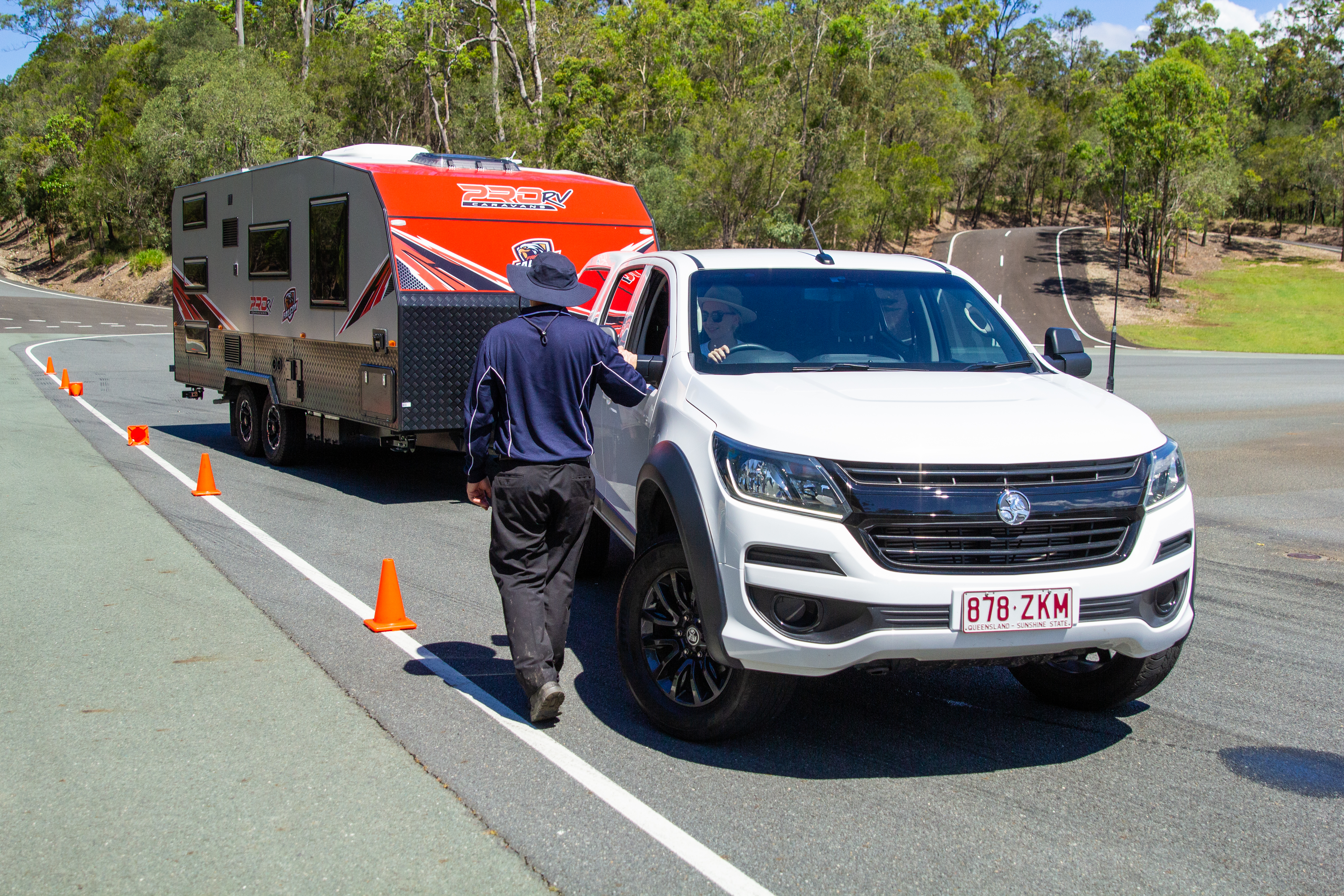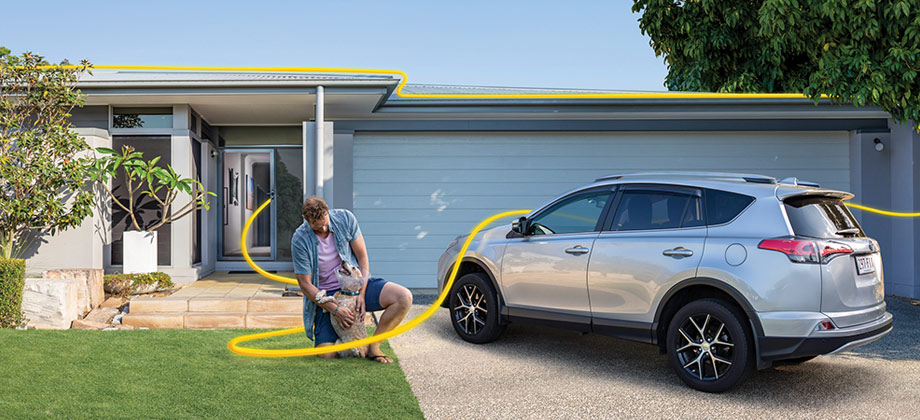How to choose a tow vehicle
Selecting the right trailer / tow vehicle combination is vitally important to your safety and to the safety of other road users.
Additionally, authorities in some States take a very hard line on incorrect combinations of trailers and tow vehicles and will issue hefty fines if the vehicle has insufficient capacity for the trailer it’s towing. The other, often not considered, consequence of this is that the trailer may have to be left at the roadside while a vehicle with a suitable tow capacity is found to move it.
Finding a vehicle with sufficient towing capacity for a larger trailer or caravan can be a problem. Once the trailer or caravan exceeds around 3,000kg the options for an appropriate tow vehicle become somewhat limited. In general terms only some heavier SUVs and larger utilities will have sufficient towing capacity for trailers of this type.
For a detailed explanation of the towing capacity terms and issues you need to understand see Trailer and tow vehicle specifications.
Find the necessary information
Owner’s manuals will contain the towing specifications you’ll need to make the right decisions. However if you’re in the process of buying a vehicle, trawling through handbooks to find it can be a tedious process, particularly if you’re comparing a number of different vehicles.
Copyright laws prevent us from making this information available online.
Be warned though that towing specifications can change from model to model, year to year and even within the same model range, depending on the exact specification of the vehicle. So it’s vital that you always confirm that the information obtained coincides with that provided in the vehicle’s handbook. If you have any doubt about the accuracy of the information we recommend confirming it with the vehicle’s manufacturer.
Vehicle durability
While it may be relatively easy to choose a suitable towing vehicle based only on the legal requirements, ensuring that it provides a durable, affordable and reasonably trouble free choice can be much harder. There are a number of factors that need to be balanced in order to achieve a satisfactory outcome in this regard.
A light duty vehicle, such as a passenger car, may be satisfactory for occasional towing, but if you’re planning to do a lot of heavy or long distance towing it’s probably worth considering something a bit more robust. But while a big 4WD for instance may be a good choice if you plan to do a lot of towing, it could be a bad choice if you spend 11 months of the year driving around town. Increased size, difficulty in parking, high fuel consumption and more costly maintenance could quickly take the shine off your new purchase.
It’s also worth carefully considering the vehicle’s towing capacity in relation to the trailer’s weight – but not only from a legal perspective. Towing can be hard on a vehicle at any time, but even more so when the trailer is at or close to the maximum capacity of the tow vehicle. Where possible choose a vehicle that has a greater tow capacity than the weight of the trailer so there is a margin of reserve. In theory, within reason, the bigger the margin the better. However, when selecting a vehicle to tow a heavier trailer a big reserve margin may not be achievable simply because the choice of suitable tow vehicles will already be fairly limited.
Match your vehicle to the towing requirements
It can be difficult to sort the manufacturer’s claims from the facts. Just because a particular vehicle is specified as having sufficient towing capacity for the application, don’t automatically assume that it will be a capable or durable tow vehicle. Quite simply, some vehicles will be better at the job than others and it can be all but impossible to tell which is the better choice simply by looking at the sales brochures. There really is no easy answer to this and the best advice we can offer is to talk to the people who already own and tow with the particular vehicle you’re considering. Things to ask include what weight do they tow, how does it handle the load, what problems have they had with it and what changes or additions have been needed. You’ll find that most will be happy to share their experiences with you. Also don’t forget to ask about typical fuel consumption, both when towing and under normal driving conditions.
Petrol vs Diesel vs LPG
Where the vehicle you are considering is available with an optional diesel engine, it may be worth considering. Many diesel engines lend themselves well to towing as their generally high torque output and flat torque curves are well suited to the task. But simply looking at the specification sheet or brochure won’t necessarily paint a true picture of the vehicle’s ability.
In fact these days it isn’t unusual to find 2 or 2.5 litre diesel engines with similar power and torque characteristics to much larger capacity engines, though in real world towing practice they could be worlds apart. Smaller capacity diesels that rely heavily on their turbochargers and technology to extract maximum power may not prove to be as capable in real world situations as a larger capacity engine that is less reliant on its turbo. While we couldn’t reasonably suggest that small capacity engines aren’t satisfactory for towing, a larger capacity, relatively unstressed engine may ultimately be a better option.
Again, the importance of consulting owners of similar vehicles who will have some firsthand experience can’t be overstated.
Before making this decision it’s worth doing some homework first. Diesel engines have a reputation for better fuel economy however; this alone may not justify the additional cost over an equivalent petrol model. Unless you drive big distances every year or use lots of fuel, it may take many years to recoup the increased cost of the diesel engine option from the fuel savings alone.
Remember that at times diesel can be significantly dearer than petrol, and diesel engines are generally more costly to service as parts such as filters can be considerably more expensive.
Diesel fuel is often more readily available than petrol in remote regions, which may be a consideration should you plan to travel in such areas.
But petrol engines shouldn’t be completely discounted. They may not have the same torque characteristics as many diesels but they often have the advantage of being cheaper to buy and maintain. The increase in fuel consumption when towing is likely to be far greater than with a diesel though.
Alternatively, instead of paying extra for a diesel engine you may wish to consider an LPG powered vehicle. LPG has a proven track record in reducing fuel costs and is widely, though not universally, available but it isn’t for everyone or every vehicle. For more information see our LP Gas Fact Sheet.
Automatic vs manual transmissions
There’s a variety of opinions on the suitability of particular transmission types, though increasingly it’s becoming an academic argument as manual transmissions become less popular and more manufacturers cease to offer them.
In general, smaller vehicles are better suited to manual transmissions due to the lower internal power losses through these gearboxes; while automatic transmissions, when mated to larger capacity engines, offer flexibility and reduced driver effort. Automatic transmissions eliminate the potential for premature clutch wear arising from hill starts and manoeuvring as well.
Additionally, some manufacturers rate vehicles fitted with automatic transmissions with a much higher towing capacity than the manual version of the same vehicle.
When using vehicles with an automatic transmission for heavy towing it is often desirable, and in some cases, mandatory as part of the towing package to fit an additional or larger transmission cooler to prevent transmission overheating. For more information on this point consult your vehicle’s dealer or a reputable automatic transmission specialist.
Ultimately though there is no single answer to the manual versus automatic question and the decision will, at least in part, be based on the end user’s preferences.
RWD vs FWD vs AWD
There has been considerable debate over the suitability of front wheel drive vehicles for towing. Traditionally, larger 6 and 8 cylinder rear wheel drive vehicles have been popular for towing, and manufacturers such as Ford and Holden ensure their large passenger cars have ample towing capacity.
Increasingly though, front wheel drive has become more common in larger cars and there are a number of front wheel drive 6 cylinder vehicles on the market that have quite significant towing capacities.
Most vehicles are capable of towing and both front wheel drive and rear wheel drive vehicles, regardless of the number of cylinders they have, are suitable providing the manufacturer’s towing recommendations are followed. It’s fair to say however, that front wheel drive vehicles tend to be more sensitive to poor load distribution, though inappropriate trailer loading can adversely affect any vehicle regardless of its drive configuration. It’s also true that front wheel drive vehicles can struggle with reduced traction on slippery surfaces such as boat ramps.
All-Wheel-Drive is another increasingly common arrangement which offers advantages in traction and roadholding. However these advantages come with greater technical sophistication, driveline complexity and weight, which adds to fuel consumption and maintenance costs.
4WDs vs Passenger cars
You’ve probably noticed that big 4WDs are popular tow vehicles for caravans and horse floats, and there is good reason for this. Quite simply, few passenger cars have sufficient towing capacity to legally tow heavy trailers. While in comparison, larger 4WDs often have quite high towing capacities and usually aren’t subject to the speed restrictions that apply to many passenger cars operating near their maximum towing load.
Those towing horse floats are also likely to appreciate a 4WDs ability to be used in off road situations such as paddocks and farm yards.
While we certainly aren’t suggesting that a big 4WD is essential for towing, there will be cases where there won’t be too many other options.
Vehicle maintenance and repairs
Heavy towing is hard on a vehicle so expect to spend more on servicing and maintenance if you tow regularly. Most vehicle manufacturers regard towing as severe use and vehicle maintenance schedules usually outline what additional servicing is required. However don’t overlook the fact that things like tyres and brake pads will also wear out faster when towing.
Things to note
The information in this article has been prepared for general information purposes only and is not intended as legal advice or specific advice to any particular person. Any advice contained in the document is general advice, not intended as legal advice or professional advice and does not take into account any person’s particular circumstances. Before acting on anything based on this advice you should consider its appropriateness to you, having regard to your objectives and needs.

